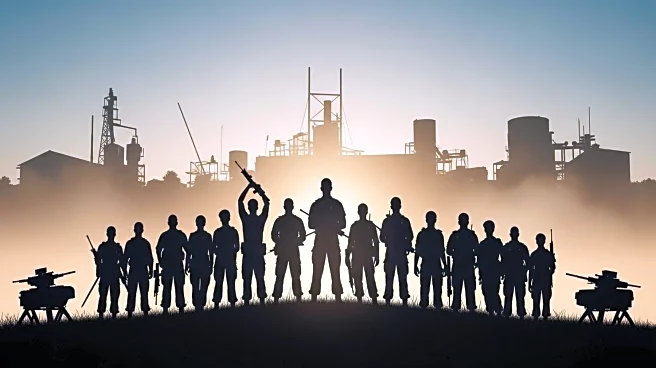What's Happening?
Recent data reveals a significant increase in the representation of recruits from Israel's social and geographic periphery in the IDF's elite units, such as Sayeret Matkal, Shayetet 13, and Shaldag. This progress is attributed to reforms initiated by former Manpower Directorate head Maj. Gen. Yaniv Asor, which included changes to cognitive screening tests, additional selection tools, and preparatory programs for special forces. Despite these advancements, representation in the prestigious pilot training course remains low, with no upward trend. The Air Force has established a special preparatory program to address this issue, aiming to provide recruits from the periphery with the necessary tools to succeed.
Why It's Important?
The increased representation of periphery recruits in elite IDF units is significant as it addresses longstanding disparities between recruits from different socioeconomic backgrounds. This development could lead to a more inclusive military, providing opportunities for talented individuals from disadvantaged areas. The reforms may also influence other sectors by demonstrating the benefits of diversity and inclusion. However, the continued low representation in the pilot course highlights systemic challenges that require further attention. The Air Force's efforts to integrate periphery recruits could set a precedent for other military branches and organizations seeking to enhance diversity.
What's Next?
The IDF plans to continue developing targeted preparatory programs to boost periphery recruits in elite volunteer units, with a focus on Ethiopian Israelis and Druze youth. The Air Force's special preparatory program for the pilot course is expected to yield improvements over time, although changes in selection processes may take longer to manifest. Ongoing dialogue and commitment from commanders will be crucial in sustaining these efforts and ensuring that talented individuals from the periphery have equal opportunities to succeed in elite military roles.
Beyond the Headlines
The integration of periphery recruits into elite units may have broader implications for Israeli society, potentially reducing socioeconomic disparities and fostering greater social cohesion. It also raises ethical considerations regarding equal opportunity and the role of military service in shaping career paths for young Israelis. The IDF's approach could influence other institutions to adopt similar measures, promoting diversity and inclusion across various sectors.












